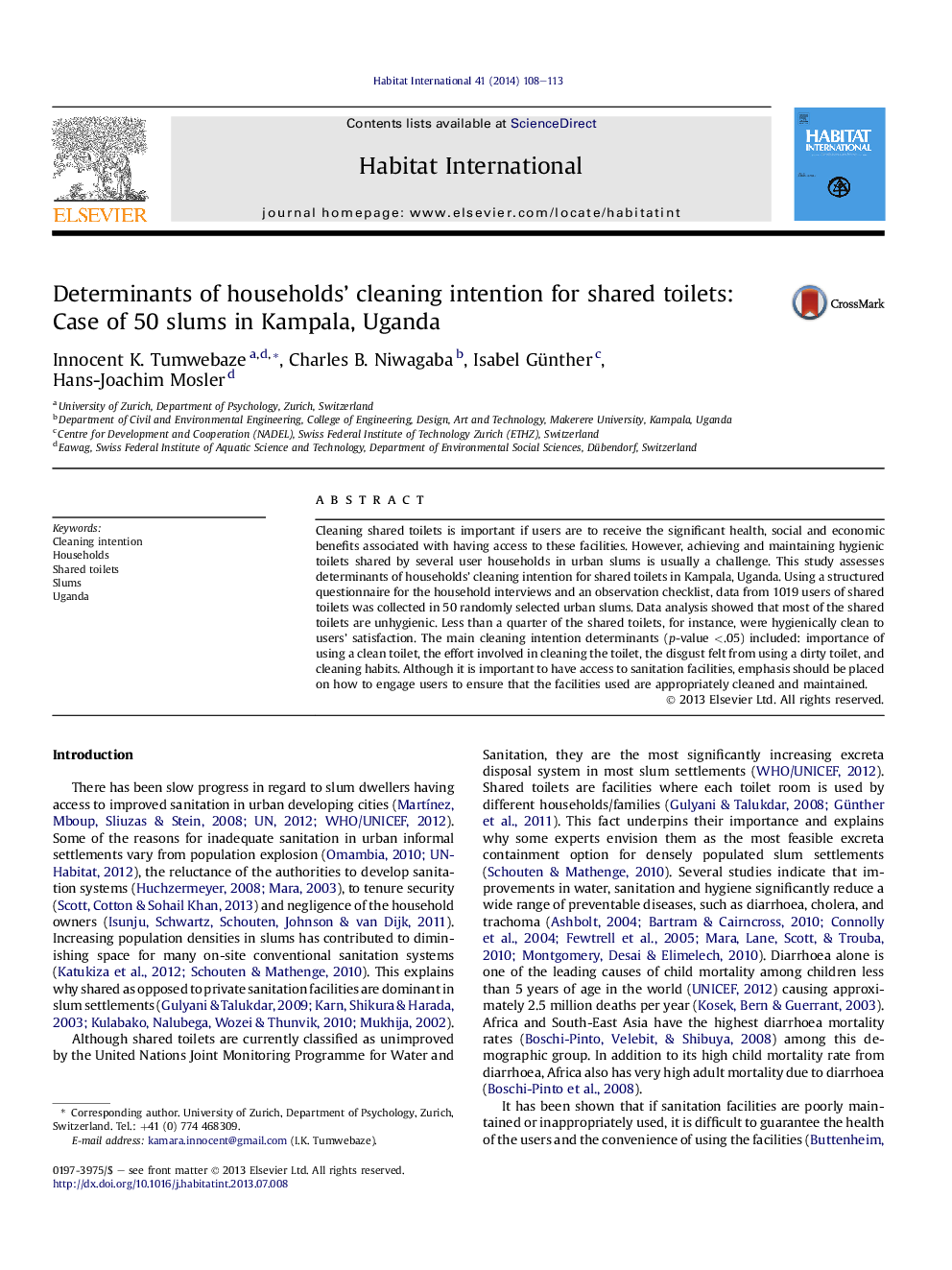| Article ID | Journal | Published Year | Pages | File Type |
|---|---|---|---|---|
| 1047849 | Habitat International | 2014 | 6 Pages |
•This research assesses determinants of slum households' cleaning intention for shared toilets.•Data from 1019 shared toilet users analysed from 50 slum communities.•68% of shared toilets were observed to be significantly dirty.•The majority of the respondents reported having strong cleaning intentions.•Positive attitudes, personal norm, ability beliefs and habits influence cleaning.
Cleaning shared toilets is important if users are to receive the significant health, social and economic benefits associated with having access to these facilities. However, achieving and maintaining hygienic toilets shared by several user households in urban slums is usually a challenge. This study assesses determinants of households' cleaning intention for shared toilets in Kampala, Uganda. Using a structured questionnaire for the household interviews and an observation checklist, data from 1019 users of shared toilets was collected in 50 randomly selected urban slums. Data analysis showed that most of the shared toilets are unhygienic. Less than a quarter of the shared toilets, for instance, were hygienically clean to users' satisfaction. The main cleaning intention determinants (p-value <.05) included: importance of using a clean toilet, the effort involved in cleaning the toilet, the disgust felt from using a dirty toilet, and cleaning habits. Although it is important to have access to sanitation facilities, emphasis should be placed on how to engage users to ensure that the facilities used are appropriately cleaned and maintained.
